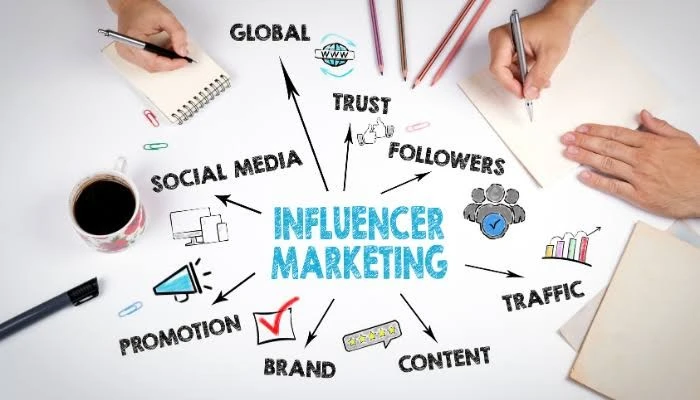
With this shift in marketing dynamics, it's clear that the role of influencers is more pivotal than ever before. Rather than launching large-scale influencer marketing campaigns, many brands now leverage these influencers to craft tailored, brand-owned content. This nuanced approach has some real perks when it comes to connecting with modern audiences.
Opting for a top influencer to craft branded content bypasses the need for a traditional creative agency or studio, which almost certainly involves time-consuming brainstorming sessions, iterations and approvals. Many influencers also come equipped with their own "studio" setups, including professional lighting, cameras and editing software, further streamlining the content creation process.
When the objective is highly specialized, like reaching a certain demographic or geotargeting a specific location, the value of using influencer-created content becomes clear. Paying just for the content gives brands the freedom to deploy it in ways that maximize its impact.
Influencers are today's content creation experts: They have grown their audiences by understanding what resonates, what engages, and what drives actions. When brands hire influencers specifically for content creation, they leverage this expertise. The resulting content is often superior to generic advertising material since influencers bring their personal touch, authenticity and creativity—factors that today's consumers value. The right kind of partnership between a brand and a content creator is a symbiotic one: Influencers understand their audience's pulse, and brands gain from their know-how.
Operating in a regulated industry brings its own set of challenges for content marketing, especially on platforms that have specific rules around what can and can't be advertised organically. For instance, over-the-counter (OTC) products may not be allowed for organic promotion on platforms like TikTok. In such cases, brands can commission influencers to create content that, although it can't be shared organically, can be used in paid ad formats that are compliant with platform regulations. This allows brands to maintain the engaging, authentic look and feel of influencer content while adhering to legal and platform-specific guidelines.
Today's consumers overwhelmingly prefer genuine, relatable content over blatant advertisements. Who better to provide this authenticity than influencers who legitimately connect with like-minded audiences? Letting them craft the content seamlessly integrates the promoted brand into stories that today's audience loves. Hiring influencers to create brand content not only delivers authenticity but also bridges the gap between what's relatable and what's aspirational. With influencers at the helm, brands can tap into established trust, drive more engagement and narrate their story in a way that resonates with modern consumers.
One of the often-overlooked advantages of work-for-hire influencer content is the long-term control and flexibility it offers to brands. By fully owning the content, brands aren't restricted to temporary usage or specific platforms. This is a game changer for evergreen products that might be promoted over a series of years.
For example, a brand that sells ornaments engraved with the year can update the content annually with minimal effort, merely by photoshopping the year on the ornament. This complete ownership also opens doors for the content to be utilized in a variety of places that standard usage rights would prohibit, like packaging, billboards, or traditional print and TV advertising.
The full ownership model turns content into a versatile asset, offering brands the freedom to repurpose, update and deploy it across multiple channels and for extended periods, thereby maximizing their investment.
When brands form partnerships with influencers specifically for content creation, the resulting material transcends the conventional ad experience to offer something more authentic and relatable.
Leveraging influencer-generated content allows brands to elevate each customer touchpoint with a layer of credibility and engagement that traditional advertisements often lack.

0 Comments